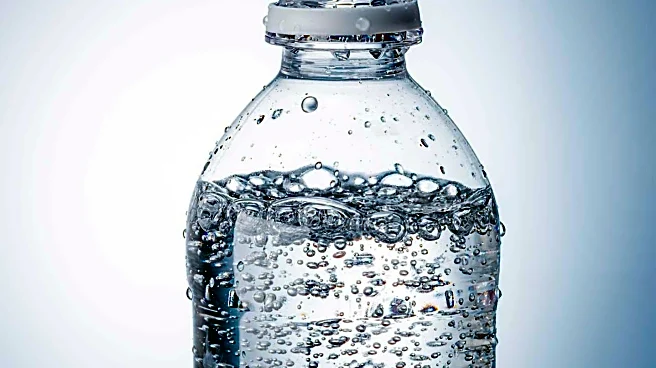What is the story about?
What's Happening?
Recent research has revealed significant health risks associated with microplastics found in bottled water. Sarah Sajedi, a researcher and co-founder of ERA Environmental Management Solutions, has published a paper in the Journal of Hazardous Materials highlighting the ingestion of microplastic particles by individuals, particularly those who consume bottled water. The study indicates that bottled water users ingest approximately 90,000 more microplastic particles annually compared to those who drink tap water. These particles, which are often invisible to the naked eye, can enter the human body through various means, potentially leading to severe health issues such as chronic inflammation, hormonal disruption, and neurological damage. Despite legislative efforts to reduce plastic waste, single-use water bottles remain a largely unaddressed issue.
Why It's Important?
The findings underscore the urgent need for comprehensive measures to address the widespread use of single-use plastics, particularly in bottled water. The health implications of microplastics are significant, as they can cross biological boundaries and affect vital organs. This poses a public health concern, as the long-term effects of microplastic ingestion are not yet fully understood. The research calls for increased public education on the chronic toxicity of microplastics and the importance of reducing reliance on plastic bottles. This could lead to policy changes and increased consumer awareness, potentially reducing the environmental and health impacts of plastic waste.
















